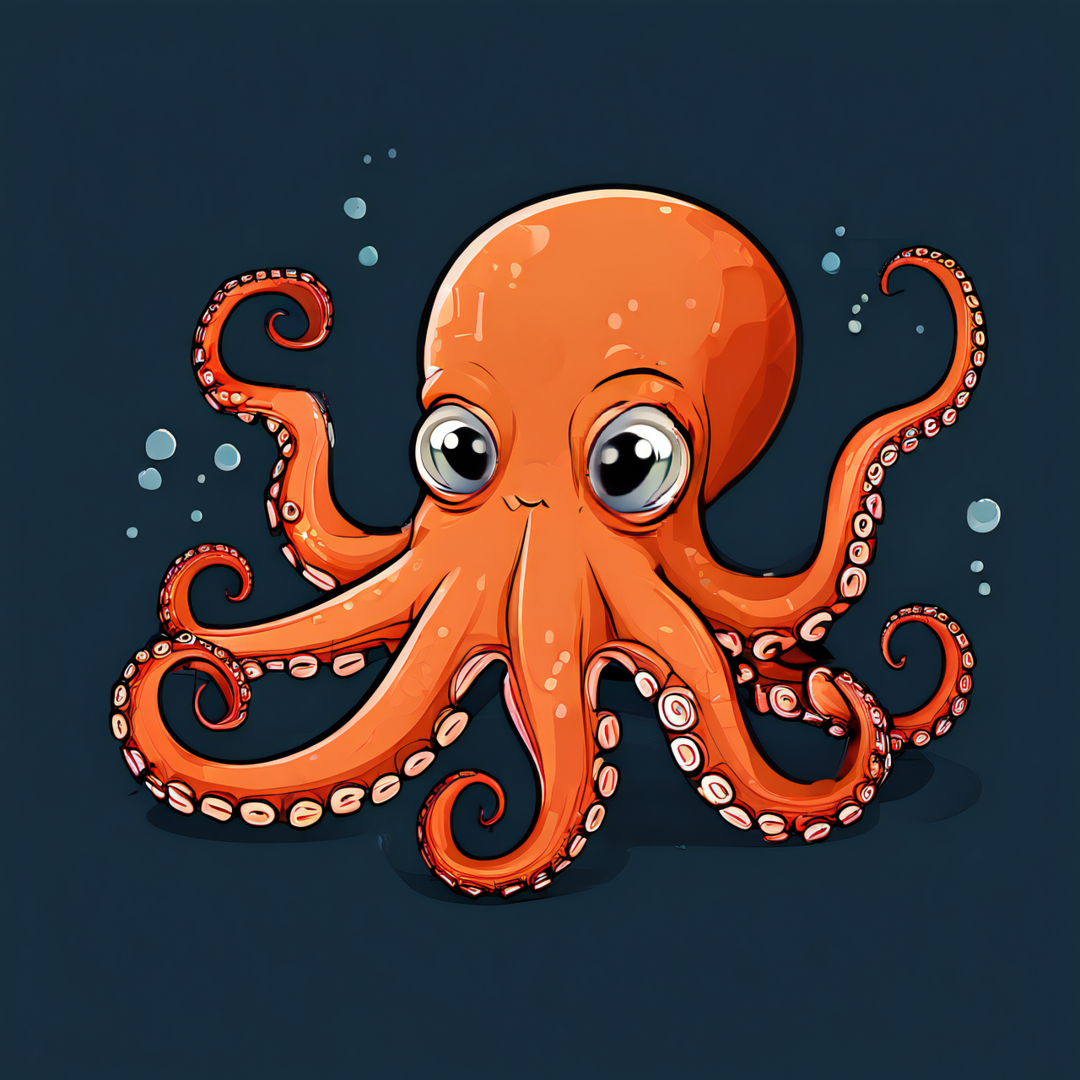
Every year on October 8th, we celebrate World Octopus Day, a day dedicated to one of the ocean's most astonishing and intelligent creatures, the octopus. Belonging to the class Cephalopoda, the octopus holds a significant place in the marine ecosystem due to its outstanding adaptability and unique biological characteristics. This special day was designated to reflect on the ecological and cultural value of octopuses and to recognize the importance of their conservation.
Intelligence and Capabilities That Cross Boundaries
The octopus boasts overwhelming intelligence among invertebrates. It possesses approximately 500 million nerve cells, a significant portion of which are distributed throughout its eight arms. This decentralization allows the arms to independently assess situations and move without direct command from the central brain. This serves as evidence of its ability to solve complex problems, such as navigating mazes, using tools, and unscrewing jar lids. Moreover, social behaviors like identifying specific people and even throwing objects at those who bother them have been observed. Some scientists estimate the octopus's cognitive abilities to be comparable to those of a dog.
The amazing capabilities of the octopus don't end there. It exhibits extraordinary camouflage by using special cells in its skin called chromatophores to instantly and flawlessly match the color and texture of its surroundings, a skill critical for escaping predators or hunting prey. Furthermore, it possesses the remarkable ability to regenerate lost arms. The fact that the octopus has three hearts to circulate oxygen throughout its body and blue blood due to the oxygen-carrying protein hemocyanin makes it an even more mysterious creature. Octopuses generally lead a solitary life, defending their territory.
Conservation Efforts and a Sustainable Future
This unique and wondrous creature, the octopus, currently faces serious threats. Indiscriminate overfishing, climate change, and the destruction of marine habitats are affecting octopus populations worldwide. Specifically, fishing pressure has intensified, with the global annual octopus catch increasing more than tenfold compared to 1950.
In response, scientific and environmental organizations are utilizing this day to promote sustainable fishing practices. Measures such as regulated fishing quotas, minimum catch size limits, and the establishment of fishing bans are being proposed as efforts to conserve octopus resources. Furthermore, the debate surrounding octopus farming continues. Concerns are growing among experts that due to the octopus's biological characteristics—being highly intelligent and a solitary predator—raising them in confined spaces could lead to severe stress and welfare issues. Active discussions on octopus welfare are taking place, with some countries and regions recognizing the octopus as a "sentient being" and passing legislation to ban farming.
World Octopus Day serves as an educational platform to share the biological mystique of the octopus and, furthermore, to reflect on the relationship between humans and the marine ecosystem. The octopus symbolizes the richness of the sea and is a critical organism that delivers the message of the need to conserve the marine environment for future generations.
[Copyright (c) Global Economic Times. All Rights Reserved.]




























